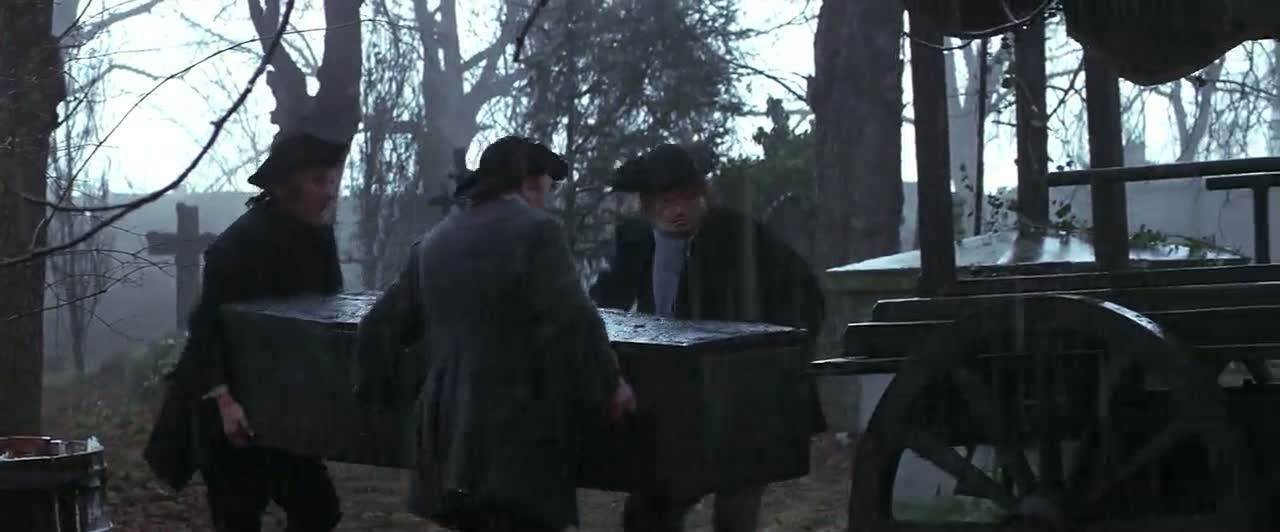The Requiem was scored for 2 basset horns in F, 2 bassoons, 2 trumpets in D, 3 trombones (alto, tenor & bass), timpani (2 drums), violins, viola and basso continuo (cello, double bass, and organ or harpsichord). The vocals include soprano, contralto, tenor, and bass soloists and a mixed choir. It was never known how much of this work was finished by Mozart before his death.
Here is a dramatization of this story by Peter Shaffer's 1979 play Amadeus that later was made into the 1984 movie of the same name, directed by Milos Forman. This movie won 8 Oscar awards.
This clip is at the very end of the movie and it is quite sad but it contains some seemingly educated dramatization of how composers compose their orchestral music... How much is real and how much is fiction? Only a real professional musician may be able to tell. But this is great movie and music making and editing. When you are down and tearful, this Requiem may cheer you up. It does me. Go get a CD for yourself.
Of the ten parts, Confutatis and Lacrimosa are featured and they are listed here for you to enjoy...
Confutatis:
Confutatis maledictis,
When the damned are cast away
flammis acribus addictis,
and consigned to flames of woe,
voca me cum benedictis.
call me among the blessed.
Oro supplex et acclinis,
Bowed down in supplication I beseech Thee,
cor contritum quasi cinis,
my heart as though ground to ashes
gere curam mei finis.
help me in my final hour.
Lacrimosa:
Lacrimosa dies illa,
O this day full of tears,
qua resurget ex favilla
when from the ashes arises
judicandus homo reus.
guilty man to be judged:
Huic ergo parce Deus,
O Lord, have mercy upon him,
pie Jesu Domine,
gentle Lord Jesus,
dona eis requiem! Amen!
grant them eternal rest! Amen!
Watch until the very end of the clip... you may learn a few things by reading the end credits. The music you hear at the end is the second movement, Romance, of Mozart's Piano Concerto No. 20 in D minor, KV 446, by the Academy of St. Martin-in-the-Fields, conducted by Neville Marriner. Unless you are French, you may think you hear a strange language during the second part of this clip. I noticed it too late and too lazy to redo this clip... but the dialogue is not very important in this movie anyway, right?




1 comment:
It was fantastic, even a tear.
Post a Comment